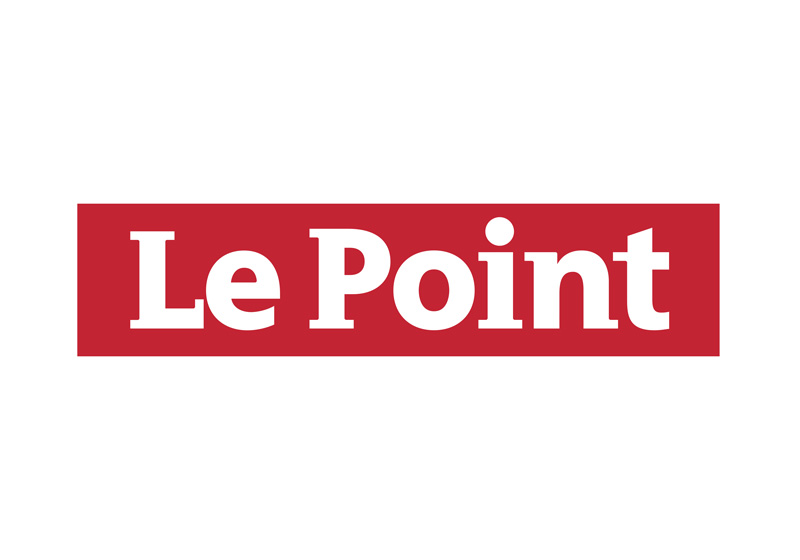Interview The Devil's Hand for Diário de Notícias da Madeira
- DNM. There’s a lot of talk nowadays in Portugal on the crisis, austerity, and the troika. Did you feel the urge to explain things clearly?
JRS: I thought readers need to understand what’s going on, why, and what lies ahead. We all know that politicians lie according to their convenience, and the public often gets confused about what’s really at stake. Some politicians say that austerity is the only way out of the crisis, others claim that there are other ways. Who is lying? I tried in this novel, The Devil’s Hand, to clarify things. I believe that, after reading it, it will be more difficult for the public to be deceived by politicians.
DNM. Do you think most people have the wrong idea of what caused the world crisis?
JRS: I wouldn’t say the wrong idea, though sometimes that happens too. What I think is that people have incomplete information and are confused about the way the economy works. There’s also an amnesia problem, on which politicians count on to keep deluding people and thus cash in a few more votes. Also, a lot of people are unaware of the way many political decisions are taken and do not know the tactics politicians use to deceive them. The Devil’s Hand explains all that, using fiction to expose the truth.
DNM. Your characters, Tomás Noronha and Filipe Madureira, provide the historical background behind the crisis. The American Great Depression, the two world wars, market deregulation, the banks… Are these events all linked and behind the current world crisis?
JRS: All those events, but not only them. Market deregulation triggered a crash with different effects in the world. Most countries were shaken by the quake, but carried on business as usual, whereas a handful of them collapsed. That proves market deregulation is not the main cause of their problems, but the catalyst that precipitated the uncovering of structural problems within their economies. These are much more serious problems than the deregulation of the markets, which in itself was serious enough. I’m talking here about structural problems such as the destruction of the West’s industry and the euro’s faulty architecture. A few countries were further undermined by bad government and corruption.
DNM. So, sooner or later this bomb would explode.
JRS: Exactly. The American crisis only hastened that collapse. The novel presents a very revealing figure: in 2010, one year before Portugal’s bailout, 96 per cent of all tax money collected in this country was spent on public wages, pensions and social subsidies. I’m going to repeat this figure: 96 per cent! Only 4 per cent was left for health care, education, public works, the armed forces and all the rest. Any housewife understands that such spending is unsustainable in the long term. So, to say that the Portuguese crisis was created by the American market deregulation, as some politicians claim, is just laughable.
DNM. It’s understandably hard to blame a single entity for this situation. Do you think we are all guilty, or should we put the blame on governments and banking institutions?
JRS: One of the things that those responsible for this mess try to do is to imply that we are all guilty. This is obviously a shrewd tactic, created to avoid responsibility. It is true that all of us share responsibility, either because we voted in politicians that promised easy policies that were very damaging in the long run, or because we avoided the political process altogether, thus leaving politics to crooks and demagogues. In that sense, we all share responsibility. But we cannot pretend that my mum, who’s a seventy years old pensioner, shares the same degree of responsibility of a Prime-Minister, a Finance Minister or the governor of the Central Bank. I won’t fall for that one.
DNM. Do you think Portugal was deliberately dragged into the crisis?
JRS: No, not deliberately. No politician tried deliberately to hurt the country. The thing is that they were only concerned about getting elected. Hurting the country was not the purpose of their electoral policies, but a mere consequence of them. And, you know what? This kind of reasoning survived. It’s still possible to watch politicians today demand in the opposition the opposite of what they actually did when in government, and politicians in government doing exactly the opposite of what they demanded when in the opposition. The exchange of arguments on whether austerity is needed or not is a case in point. These chaps have learned nothing.
DNM. Did they spend the money in the wrong way and ignored the future?
JRS – Absolutely. Politicians were only concerned about getting elected and taking care of their friends and financers. They knew they were leading the country into the abyss, but they didn’t care. All they cared about was getting elected and managing their shady dealings.
DNM. Do you think people are becoming more aware of what’s really going on?
JRS: Yeah, but it’s too late. People nowadays go out to demonstrate, but where were the demonstrations when governments were handing expensive and unnecessary public works to friends, spending large amounts of money in a social security system that became so huge that it’s now unsustainable and indebting the country as if tomorrow was unimportant? I get the impression that only after our house was burgled do we care about locking the door. The burglary has already taken place, I’m afraid.
DNM. The Devil’s Hand presents in its fiction a number of tapes where politicians make dealings that are advantageous to them but hurtful to the economy. It seems to me that the details you presented are very close to reality. How scared should we be?
JRS – The public does have a sense that a lot of wrong dealings take place backstage, away from the public’s view, but people are not sure of anything because they can’t see these dealings. In that respect, I fear reality is even worse than my fiction.
DNM. In your novel, the International Penal Court in The Hague opens legal proceedings against those responsible for the crisis for crimes against humankind. Do you think that this is a fiction that should be real?
JRS – Of course. But none of us is deluded to the point of believing such a thing will ever happen, are we?
DNM. The Devil’s Hand also deals with the possibility of some countries, such as Greece, Portugal and Spain, leaving the euro. Do you think these countries will leave the common currency?
JRS – I honestly don’t know. If they leave the euro, they’ll have a lot of hardship ahead. But if they remain in the euro, they’ll also have a lot of hardship ahead. Whatever politicians say, whatever delusions they will try to sell to get a few more votes, the fact is that these countries are faced with very bad decisions and awful decisions. This includes Italy, France, the United Kingdom and the US, by the way. It’s not just a euro problem, it’s a debt problem in the West. Whenever we see a politician promising an easy way out of the crisis, we are watching a politician in the act of lying. There is no such thing as an easy way out. What we have are politicians selling delusional solutions to cash in on dissatisfaction to get a few more votes. In the minds of these people, nothing has really changed.
DNM. What about the future of these countries? Do you think that nations like Portugal are going to overcome these problems?
JRS – Rest assured that no country is going to disappear off the Earth. But, unless they find huge oil fields within their borders, they are going to get poorer. Or rather, they are going to live with the wealth they really create – which unfortunately isn’t much nowadays. We have, however, to bear in mind that success breeds failure and failure breeds success. These countries will have to change their economic structure and their mind frame on the economy. The state structure does not create wealth. It does not produce cars, wine, olive oil, shoes, clothes. It’s the private sector who does that. These countries will have to create an environment for investors to open factories that manufacture the goods other countries want to buy. The quicker they understand this, the better for them.



